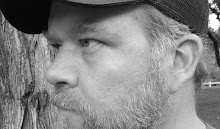
Pretending on Purpose part2. The craft of acting is so varied, with each style and period demanding its own set of rules, customs and techniques. When I teach about acting I try, at least with my beginners and intermediates, to keep to techniques that cross the boundaries and apply to most, if not all, styles of acting.
About three years ago I was invited to be a part of an arts camp for a local church that I attended. In preparing for this camp,which only gave us about three one hour sessions with these kids, I struggled for a simple way to break acting down into manageable steps and here is what I came up with.
Actors in almost all disciplines are presented with three basic challenges: BE SEEN, BE HEARD, BE UNDERSTOOD. Now on the surface these seem to be very basic indeed, but if you think about them they entail most of the things that any actor needs to know to communicate well with an audience.
First BE SEEN. This of course is essential in most acting on stage or film. Not only does the actor need to be comfortable with being looked at, he must also learn how to present an image that will allow his audience to more fully "see" who his character is, what the setting may be, and what the relationships between him and others are. In addition to what is seen, an actor must always be aware of those things that should not be seen. In fact, much like a master illusionist, the skilled actor learns to direct his audience's attention very precisely, aiding in the storytelling by becoming much like the eye of the camera for a film director.
Second BE HEARD. Immediately we think of a drama teacher standing at the back of the theatre yelling, "I can't hear you!" Well, louder is not always better. An actor must not only learn to be heard physically, but must learn to shape what is heard by the audience to more clearly communicate the intentions and emotions of his character. Just as in BE SEEN, it also includes learning how to control what should not be heard.
Third BE UNDERSTOOD. Many actors spend years ridding themselves of regional accents, speech defects and the like, and it is no small thing to learn to speak clearly and intelligibly. This is where it stops for most amateurs. On a deeper level being understood means making an emotional connection with your audience, allowing them to peak inside the objectives of your character. The best actors can make us sympathetic to even the least lovable characters, this is being understood.
If you keep these three in mind and implement whatever level of skill you have to make them a reality you cannot help but make yourself a better actor. I'll be back next time to begin discussing how we go about making the three B's a reality in our performances.


